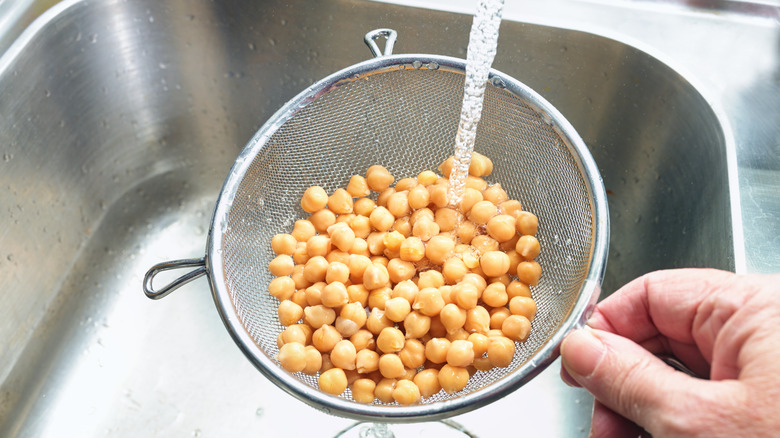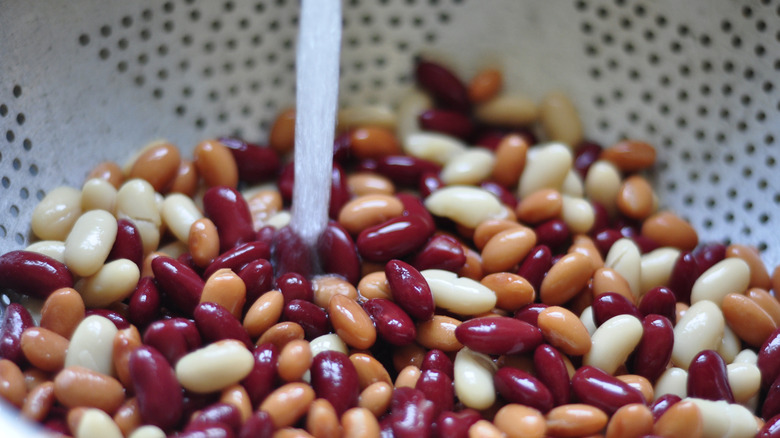When You Should (And Shouldn't) Rinse Canned Beans
We may receive a commission on purchases made from links.
You know to rinse your produce. You know to rinse your rice — you do rinse your rice, right? But should you rinse canned beans? The Takeout consulted Ed McCormick, a food science expert who founded Cape Crystal Brands and is the author of "Beginners Guide to Hydrocolloids," to tackle this tricky question. According to McCormick, it depends. Some dishes are better off without the additional salty, starchy liquid, and others benefit from it.
Like the beans within the can, its liquid is high in starches. "A starchy liquid can be useful in some dishes, like soups and stews or chili, because, along with body, it also contributes a natural thickening quality," McCormick says. Starches like bean liquid can give soups and stews a thick, creamy texture without the need for dairy, though McCormick notes that the effect is "not quite as dramatic as heavy cream; more hole-filling than door stop."
It can even work in lieu of other popular thickeners like cornstarch or flour. "Sometimes I will reserve the liquid if a richer sauce is desired ...," McCormick says. You shouldn't necessarily dump it all in right away, though. Starches can break down if they're exposed to heat for too long, and reserving the liquid to add bit by bit can give you better control over the texture. Just be careful not to add too much: Startchy soups and stews will thicken as they cool.
When to rinse canned beans
If you don't need the salty, starchy liquid in canned beans, then you can rinse them. "I always rinse canned beans if the recipe depends on a light, clean flavor or precise seasoning — like salads, tacos or sautes — because that liquid can be salty and might deaden fresh seasonings," Ed McCormick explains.
He's not kidding about the salt: Draining and rinsing beans can reduce their sodium content by 41 percent, so you might want to rinse all your beans and opt for other thickeners instead if you're on a low-sodium diet. Salt isn't the only reason to rinse beans before adding them to a salad, though. The thick, slimy liquid has an off-putting texture, so it's better to rinse beans if you're planning to serve them raw.
However, there are instances where you may want to save the liquid for another use. If you're using canned chickpeas, you might want to reserve the liquid — especially if you avoid eggs. "Chickpea liquid (aquafaba) is unusual," says McCormick. "It whips up like egg whites. Vegan meringues and mousses are made using it, as is froth for cocktails."

